
Ever wondered what it's like to work for the world's rich and famous?
You wouldn't be the only one if your answer is yes. For us 'common folk', the lives of the elite are something we're intrigued by. It's a curiosity we've had for generations, whether that be via Scott Fitzgerald's The Great Gatsby or even Gossip Girl.
For some, they know firsthand what it's like to be in the orbit of someone from this sphere. In fact, three have shared their very stories with Mamamia, letting us peek behind the curtain to a world we so rarely get to see.
Annabel Bower, a private chef and nanny for a Lord and Lady considered to be a "modern-day Downton Abbey".
Annabel Bower always loved cooking and knew she had a knack for it.
It wasn't until she travelled to Ireland during her university holidays and visited a world-renowned cookery school that she considered cooking as a career option.
She decided to enrol herself and learned everything from butchery to patisserie and how to master French cooking techniques. This new skill set and talent then eventually led to her landing a very interesting job.
"I knew I didn't want to be a chef in a restaurant so when an opportunity arose for me to take on a role as a private chef and nanny for an aristocratic family in England I jumped at the chance," she tells Mamamia.
She got the job through a woman she had done the cooking course with, who was the aristocratic family's niece. This niece also happened to be a direct descendant of Queen Victoria.
"I worked for the family for almost nine months, cooking for countless dinner parties, fox hunts, polo picnics, family meals and everything in between. The parents mostly worked up in London during the week, the mother for British Vogue and the father as a sitting member of The House of Lords.
"They came back to the country on weekends, often with extra houseguests staying for dinner parties or hunting. Mid-week I took care of the day-to-day tasks for their three young children and on weekends I morphed into chef extraordinaire. They also had a cleaner, housekeeper and gardeners."
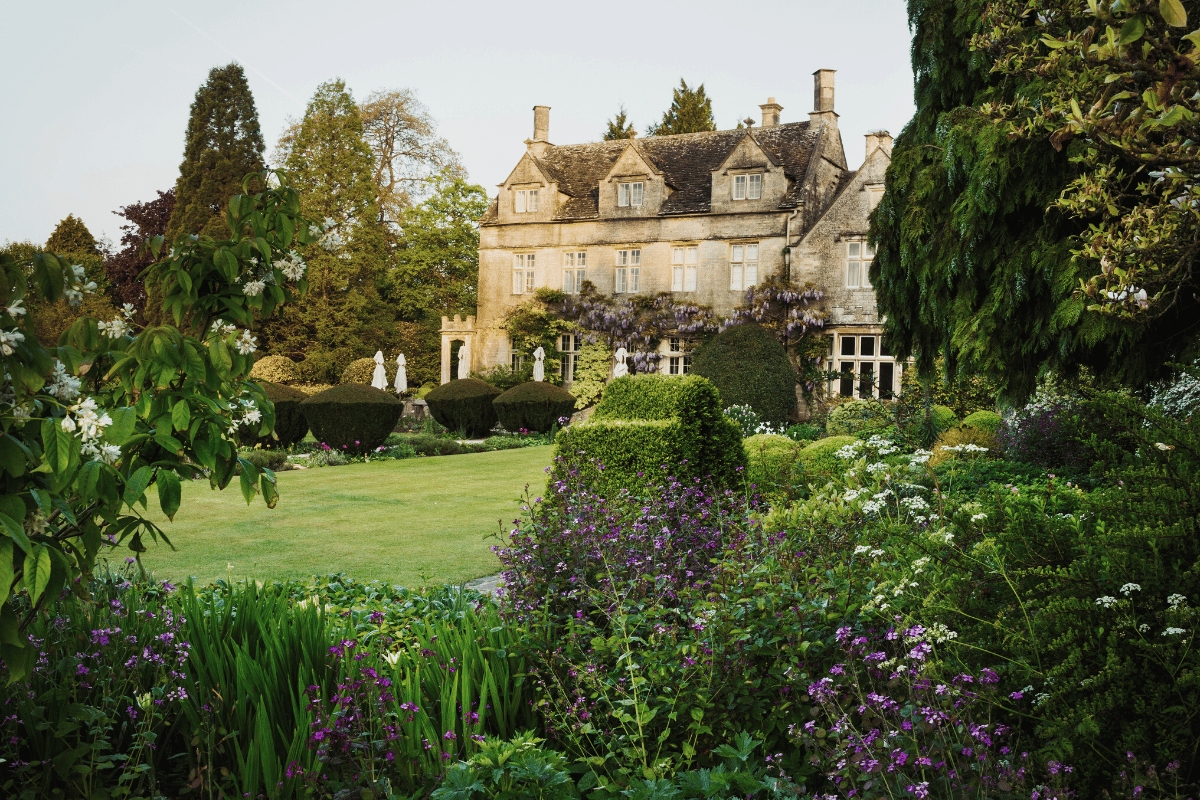 One of many sprawling estates in Gloucestershire. Image: Getty.
One of many sprawling estates in Gloucestershire. Image: Getty.
Describing the family as "a modern-day Downton Abbey" who lived in Gloucestershire, Annabel says her then 21-year-old self was "incredibly naïve" to the British class system.
Her primary job was to be the live-in chef. She would plan all the meals and parties for the week. There was a big focus on local produce, so she would cater to this, along with using pheasants shot on the estate.
She once found two fox heads in the freezer — not to be eaten fortunately, but in there for preparation to be taken to the taxidermist's workshop.
Slowly as time went on though, her job list grew.
"I ironed all the children's clothes, obviously a little too well as it wasn't long until ironing shirts for the father became my job too. Given that the British upper classes change for dinner every single day that meant there were a lot of shirts to get through each week."
Along with this, she was also tasked with grooming and exercising the horses.
Annabel had grown up riding competitively, so this task was a big perk for her. She was also allocated a gigantic horse of her own to ride called Hector. He happened to be the horse the family had lent to Prince William the previous winter as his horse for fox hunting.
Annabel would often feel she had to be 'on duty' 24/7, given she lived with the family on the estate. For respite, she would plan little trips away so that her days off were spent exploring England.
"I'd come to live with the family as a friend of their niece, they were incredibly welcoming, and I formed a fabulous friendship with them, especially the mother. Yet the other 'workers' in the village didn't quite know where to place me. I was 'the help' like them, yet confusingly I was also a friend of the family — someone who sat on the fence between class divides which often left me in no-man's-land," she explains.
On some weekends off, she would join the family at a local polo match for a picnic. More often than not, the "Wales boys" (aka Prince Harry and Prince William) were playing for one of the polo teams. King Charles also used to hunt with the family Annabel worked for.
"I was quite excited to catch a glimpse of them but was told that it'd be considered incredibly poor form to take photos or gush over them," Annabel says.
The royals weren't the only famous faces she came into contact with.
"Hugh Grant was seen wandering about the village on his way to visit the Duke, as were several other stars. One day a lady turned up. She was drenched from the rain and I asked her in and gave her a slice of cake and a pot of tea. My employers weren't home but when I described her later they said 'Oh, that would have been the Countess — did you know the Rolling Stones wrote a song about her?'"
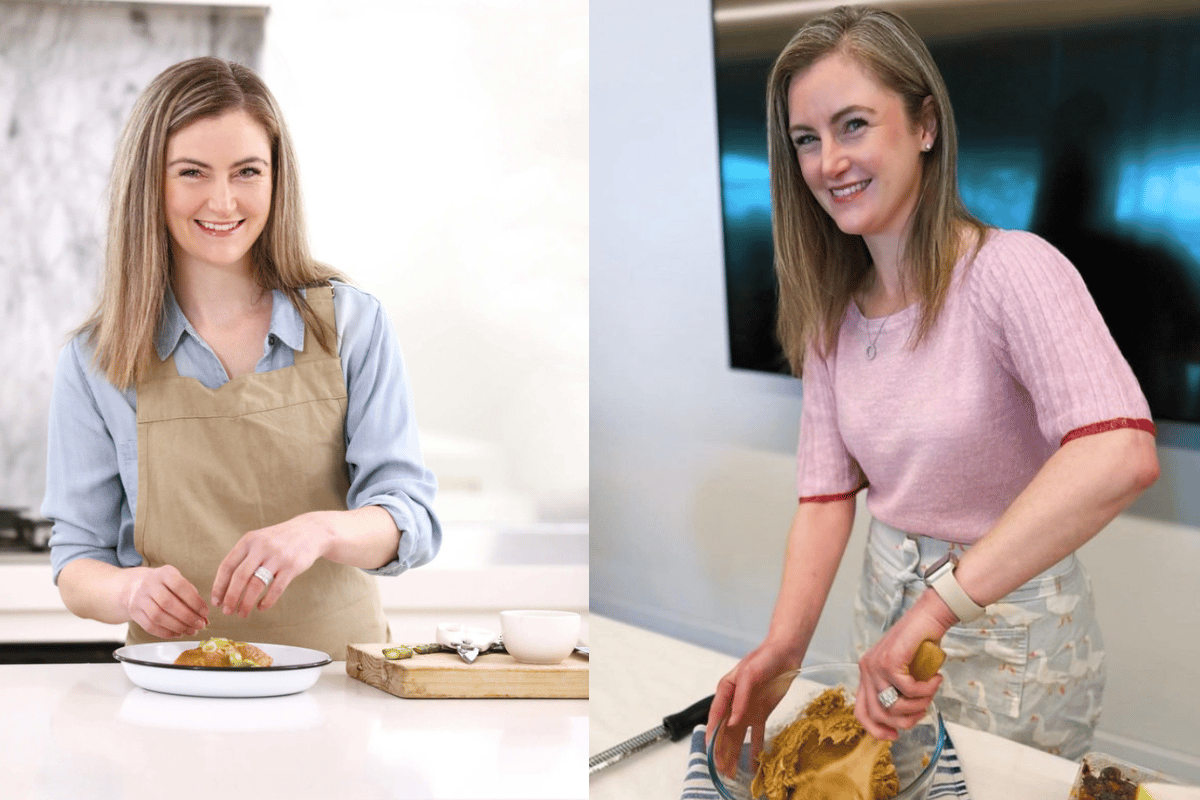 Annabel Bower. Image: Jodi Nash, Style Media Co.
Annabel Bower. Image: Jodi Nash, Style Media Co.
Overall, Annabel says she loved her time with family. But the class divide is something she still grapples with.
"I was probably a bit too Australian to settle in long term. To be given an unfiltered view into the inner workings of an aristocratic family was truly remarkable. We see many scenarios portrayed in historic shows like Downton Abbey and whilst the modern-day versions share many similarities, the world has undeniably changed. The great wealth of previous generations which funded many of these estates has, in many families, been diminished," she notes to Mamamia.
Annabel feels that as glamorous as having live-in staff may seem, it must not have be easy having an extra person live with you permanently. She doesn't know if she would be comfortable with that lack of privacy.
"When you peer behind the gilded curtain what stands out most to me is that just like 'normal people', celebrities and aristocrats may live a life of privilege and luxury which most of us will never experience but that doesn't necessarily mean that their lives are free from adversity. It just means they get to enjoy delicious meals cooked by someone else while wearing perfectly ironed shirts."
Nowadays, Annabel has her own catering company and works as a food stylist and recipe writer. She also works closely with Maggie Beer, styling many of her advertising campaigns. Annabel is a mother of five and the author of Miles Apart — A Heartfelt Guide to Surviving Baby Loss.
Martin Coyle, a former roadie for bands and musicians such as Dire Straits, Tears for Fears, Kiss and Bon Jovi.
As soon as Martin was given "the sniff of an opportunity" to be a roadie, he jumped at the chance.
"I was given a guy's phone number who controlled the road crew and called him every day for two weeks until he asked me to come in for an interview — which I passed and went on the road the next day with The Kids from 'Fame'," Martin tells Mamamia.
"Straight after I went out with Tears for Fears, then Dire Straits. I used to walk around thinking that most young people would kill for my job, so I always had a huge grin on my face!"
He was on the roading touring all over Europe for more than three years, plus a few additional months working in a recording studio.
When it comes to his favourite band to work with, Martin looks back on one in particular very fondly.
"Tears for Fears were the best. I drove them in a minivan around Europe on their first European tour. I was with them when their first album The Hurting went gold in Germany, and partied with them."
As for his least favourite experience... Kiss.
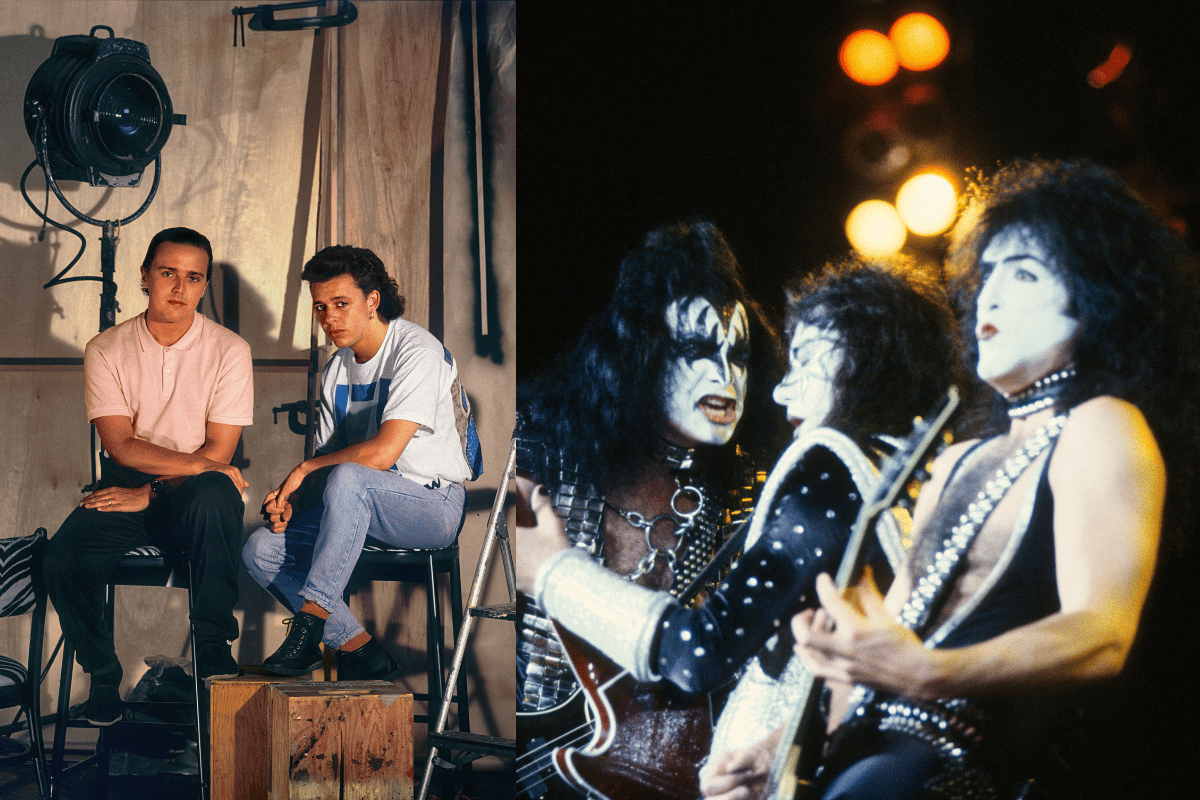 Tears for Fears and the band Kiss at the time Martin worked with them. Image: Getty.
Tears for Fears and the band Kiss at the time Martin worked with them. Image: Getty.
"They were distant from the crew," Martin explains, adding that the Kiss band members "flew to gigs on a private jet, left straight after the show and just never mixed or even showed any thanks for the job that we did for them".
"The largest part of my job as a roadie was to sell merchandise mainly, but I used to help the lighting and sound crews or run errands for the tour manager," he says.
"Since I worked front of house, I used to meet lots of local people in whatever city we were playing in. So I used to find out the best nightclubs to get into and arrange for us to get into the VIP area."
On one tour with Tears for Fears, Martin drove the band through East Germany to get to Berlin. This was in the days before the Wall came down, so they had to drive through what was known as 'The Corridor'.
"This was a highway that allowed Westerners to get to Berlin, but you had to go through the East German border, which took a long time and they made sure to check everyone's passport and try and make us feel scared of them — there were gun turrets and barbed wire fences," Martin reflects.
"For the last 15kms, the freeway ended and we went through country lanes where there were troops by the thousands and the buildings still had holes in them from WWII. Then suddenly we were at the checkpoint, and into Berlin and it was the liveliest place on the planet! The vibe was live each day as if it is your last."
After that gig in Berlin, Martin remembers the band and the crew being surrounded by 500 screaming young women who wanted autographs, including Martin's.
"We got to the van, and the tour manager was driving that night so I got in the back with the band. There were dozens of faces and hands flat up against the car windows, and I remember savouring the moment and thinking to myself: 'This must be what it felt like to be a Beatle!'"
There were challenges to the job as well, Martin saying living out of a suitcase loses its novelty after a while. But working with music royalty is certainly something he'll never forget.
"Being around these bands gave me the chance to experience fame, without any downside of being famous myself. But, it also showed me that it can be a shallow world, with a lot of people feigning that they like you just to get an advantage for themselves — too many hangers-on. It would be difficult for the famous to really know who to trust."
After finishing up as a roadie, Martin became a business coach — building a successful telecommunications franchising opportunity from a start-up to 73 franchisees in just three years. To hear more from him, you can visit Alluvion Business Coaching.
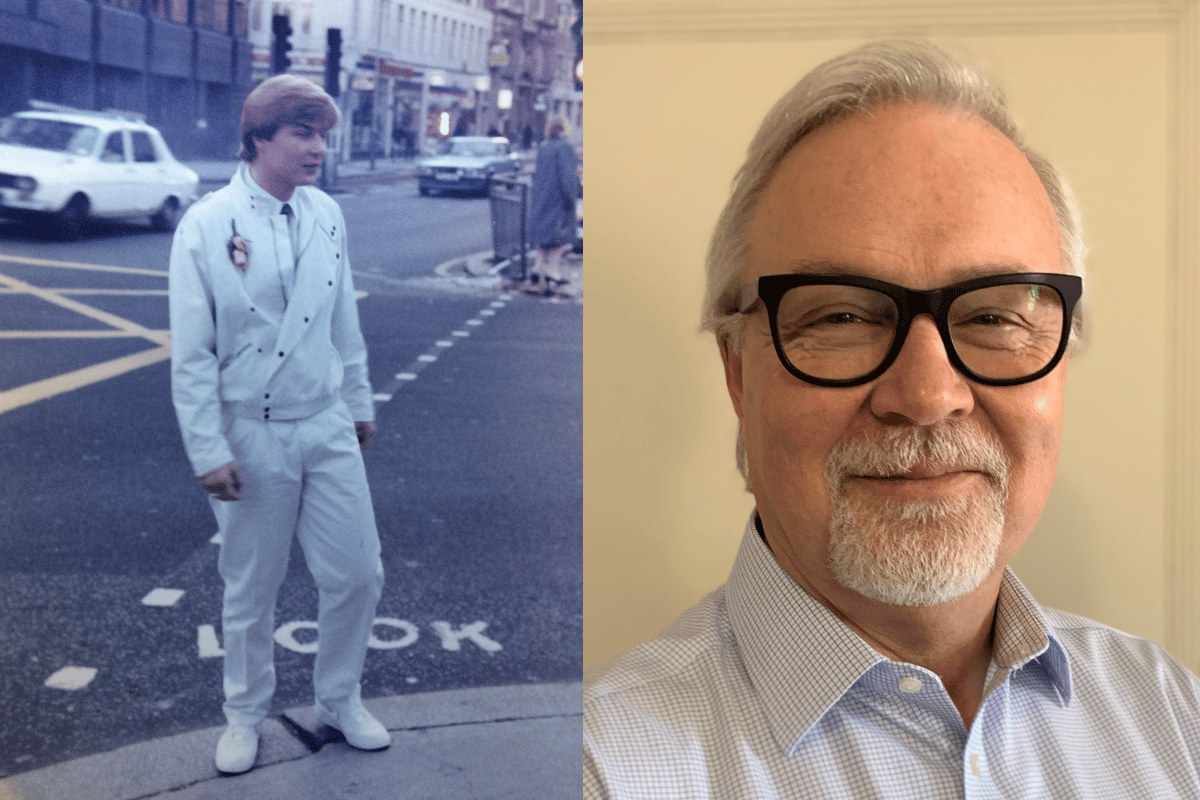 Marty then and now. Image: Supplied.
Marty then and now. Image: Supplied.
Candice Burningham, a former Executive Assistant to CEOs, media head-honchos and a famous British interior designer.
For a long time, Candice says she didn't realise that the realm of admin was her calling. But once she was promoted to her first role as an Executive Assistant, she knew it was the perfect job for her. And throughout the years, she has worked for a large number of high-profile figures, mostly working with each client for two to three years.
As for the tasks she has done over the years... it's broad, to say the least.
"The role of an Executive Assistant has changed so much throughout my career. Initially, it meant being the 2IC, attending all meetings, taking minutes and following up action points, diary and email management, travel, board papers and more," Candice tells Mamamia.
But there are plenty of tasks Candice did over the years that likely were outside her official job description.
Food and dry-cleaning collections, organising kids' birthday parties, sending flowers to the wives of the clients, organising a house move and babysitting kids.
As she says: "You name it, I've done it."
Another big part of her role has been to organise a client's holiday or work trip to make sure it's planned perfectly to the tee.
"For one executive, I had to fly ahead to the holiday destination they were going to with their friends. They wanted to ensure their luggage was there and put away on arrival, that the room was set up how they liked it," Candice explains.
"This included fresh white flowers only, the beds were made with the client's linen (not the hotels), the particular candles that they liked were burning upon arrival and more," she says. "When they arrived, their food preferences were discussed with the hotel staff and chef, and a briefing with a local trainer took place regarding what exercise equipment the client wanted to use."
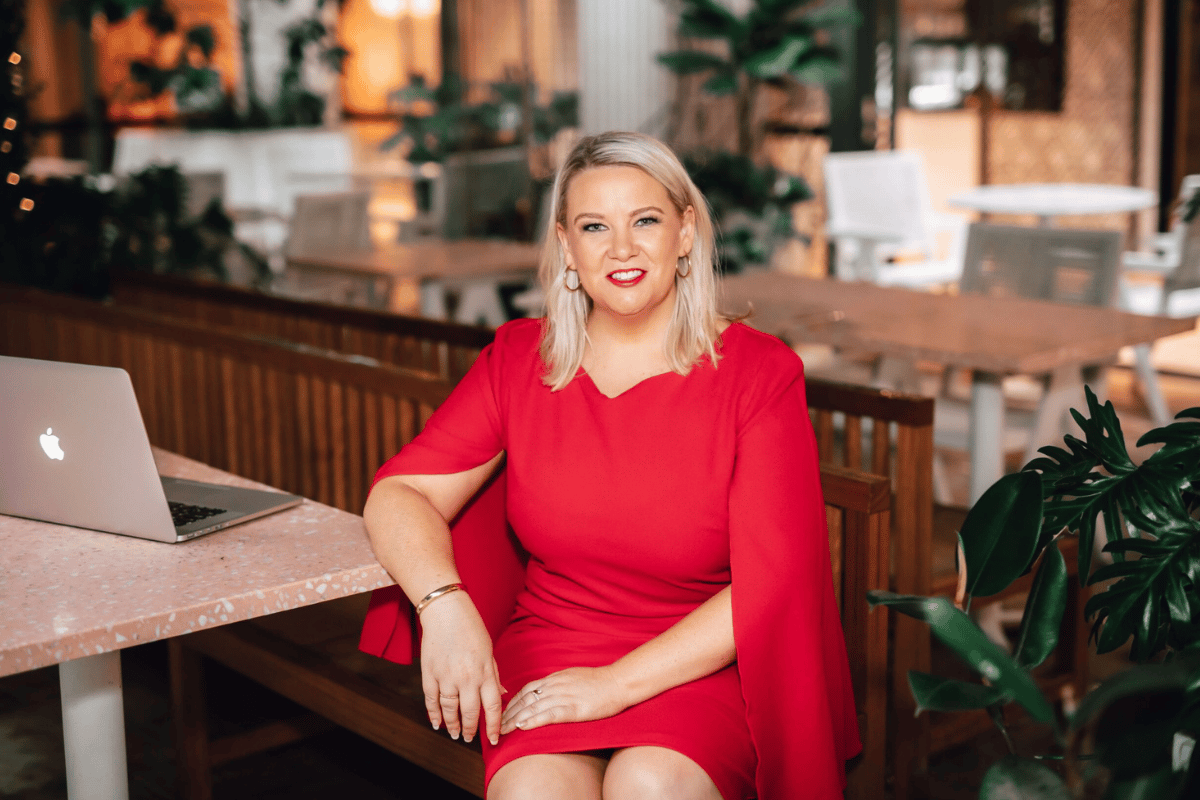 Candice Burningham. Image: Supplied.
Candice Burningham. Image: Supplied.
From a famous interior designer, to a Chairman, CEO, an Executive of an international news company and more, Candice says some clients were "so easy and grateful for the simplest things". But others were in her eyes "absolute nightmares who were never happy".
"The perks are the travel, flying on private planes, being able to attend celebrity events, going on mega yachts, access to places and people you just wouldn't believe. The con is you're 'on' 24/7, if something goes wrong — that's on you," she explains.
"You can't really have a home life if you're expected to travel with these execs. I came home after a stint and my plant had died so I knew pets were not going to be on the cards for me."
Despite the sometimes-tough work, Candice says she "absolutely loved" working with the rich and famous.
"I think the time I did it was perfect too as I was young, had lots of energy, was eager to please, single and able to go at the drop of a hat. It was exciting and fun!
"My advice to people looking to take on these roles, be clear on what the role involves before you agree to the salary. If you're expected to be available 24/7, make sure you're compensated for that. It's important to act with integrity as well. These execs are trusting you to assist them in their lives. Other than that — have fun! It's an incredible career."
For more from Candice Burningham, you can see her work as the founder of The Executive Support agency.
As for the final verdict from these three lovely people about working for the rich and famous?
It's definitely hard yards. But amid all the chaos, it can be pretty amazing to peek behind the curtain and see how the other half live.
Feature Image: Canva/Mamamia.
Calling all Shopaholics, Retail Therapy Enthusiast & Glamour Gurus ! Take this short survey now to go in the running to win a $50 gift voucher!
